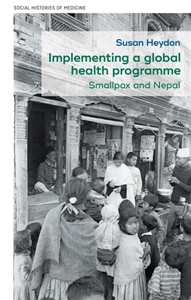Description
More Information
Rights Information
Albania, Algeria, Angola, Argentina, Armenia, Australia, Austria, Bahrain, Belgium, Belize, Benin, Bolivia, Bosnia and Herzegovina, Botswana, Brazil, Bulgaria, Burkina Faso, Burundi, Cameroon, Canada, Cape Verde, Central African Republic, Chad, Chile, China, Colombia, Comoros, Congo [DRC], Congo, Republic of the, Costa Rica, Ivory Coast, Croatia, Czech Republic, Denmark, Djibouti, Ecuador, Egypt, El Salvador, Equatorial Guinea, Eritrea, Estonia, Ethiopia, Faroe Islands, Finland, France, French Guiana, Gabon, Gambia, Georgia, Germany, Ghana, Greece, Guatemala, Guinea, Guinea-Bissau, Guyana, Honduras, Hongkong, Hungary, Iceland, India, Indonesia, Iran, Iraq, Ireland, Israel, Italy, Japan, Jordan, Kazakhstan, Kenya, Kuwait, Latvia, Lebanon, Lesotho, Liberia, Libya, Lithuania, Luxembourg, Macau, China, Macedonia [FYROM], Madagascar, Malawi, Malaysia, Mali, Malta, Mauritania, Mauritius, Mayotte, Mexico, Mongolia, Montenegro, Morocco, Mozambique, Namibia, Netherlands, New Zealand, Nicaragua, Niger, Nigeria, Norway, Oman, Pakistan, Panama, Paraguay, Peru, Philippines, Poland, Portugal, Puerto Rico, Qatar, Reunion, Romania, Russia, Rwanda, Saint Helena, Sao Tome and Principe, Saudi Arabia, Senegal, Serbia, Seychelles, Sierra Leone, Singapore, Slovakia, Slovenia, Somalia, South Africa, South Korea, Spain, Sri Lanka, Sudan, Suriname, Swaziland, Sweden, Switzerland, Syria, Taiwan, Tanzania, Thailand, Timor-Leste, Togo, Tokelau, Tunisia, Turkey, Uganda, Ukraine, United Arab Emirates, United Kingdom, United States, Uruguay, Venezuela, Vietnam, Western Sahara, Yemen, Zambia, Zimbabwe, South Sudan, Cyprus, Palestine, Bangladesh, Cambodia, Liechtenstein, Azerbaijan, Jamaica, Kyrgyzstan, Dominican Republic, Myanmar, Monaco
Endorsements
Even the leader of the WHO-led global smallpox programme acknowledged the exceptionalism of Nepal's success. Implementing a global health programme: smallpox and Nepal is about why when faced with overwhelming environmental and infrastructural challenges the smallpox programme succeeded in Nepal. Such problems are usually offered as explanations for failure. Why something worked is unusual. The Himalayan region is a novel area for exploration of a global programme. Project leaders in Nepal decentralised the programme's structure, not just on paper but in practice to achieve timely and effective response. The WHO worked with governments of nation states. Nowhere else in the official history in the conclusions drawn from different national programmes is such a decentralised strategy referred to as a reason for success. It is also absent from the wider literature. The book tells multiple and different stories from the local to the global and involves individual, community, state, extra-state, and foreign actors. The devastating disease of smallpox was common in Nepal in the 1960s and the book places people's experiences at the forefront. These influenced ideas and behaviour, including vaccination. Mass vaccination remained important throughout Nepal's smallpox programme but after 1971 was a time-limited annual campaign administered in line with Nepali people's longstanding preference for it being given in winter. Although success with smallpox was more than forty years ago, implementing communicable disease health programmes with their many challenges remains highly topical and relevant today.
Reviews
Even the leader of the WHO-led global smallpox programme acknowledged the exceptionalism of Nepal's success. Implementing a global health programme: smallpox and Nepal is about why when faced with overwhelming environmental and infrastructural challenges the smallpox programme succeeded in Nepal. Such problems are usually offered as explanations for failure. Why something worked is unusual. The Himalayan region is a novel area for exploration of a global programme. Project leaders in Nepal decentralised the programme's structure, not just on paper but in practice to achieve timely and effective response. The WHO worked with governments of nation states. Nowhere else in the official history in the conclusions drawn from different national programmes is such a decentralised strategy referred to as a reason for success. It is also absent from the wider literature. The book tells multiple and different stories from the local to the global and involves individual, community, state, extra-state, and foreign actors. The devastating disease of smallpox was common in Nepal in the 1960s and the book places people's experiences at the forefront. These influenced ideas and behaviour, including vaccination. Mass vaccination remained important throughout Nepal's smallpox programme but after 1971 was a time-limited annual campaign administered in line with Nepali people's longstanding preference for it being given in winter. Although success with smallpox was more than forty years ago, implementing communicable disease health programmes with their many challenges remains highly topical and relevant today.
Author Biography
Susan Heydon is a Senior Lecturer in Social Pharmacy at the University of Otago.
Manchester University Press
Manchester University Press is a leading UK publisher known for excellent research in the humanities and social sciences.
View all titlesBibliographic Information
- Publisher Manchester University Press
- Publication Date February 2025
- Orginal LanguageEnglish
- ISBN/Identifier 9781526176660 / 1526176661
- Publication Country or regionUnited Kingdom
- FormatPrint PDF
- Pages304
- ReadershipGeneral/trade; College/higher education; Professional and scholarly
- Publish StatusPublished
- Dimensions216 X 138 mm
- Biblio NotesDerived from Proprietary 5883
- SeriesSocial Histories of Medicine
- Reference Code15975
Manchester University Press has chosen to review this offer before it proceeds.
You will receive an email update that will bring you back to complete the process.
You can also check the status in the My Offers area

Please wait while the payment is being prepared.
Do not close this window.



